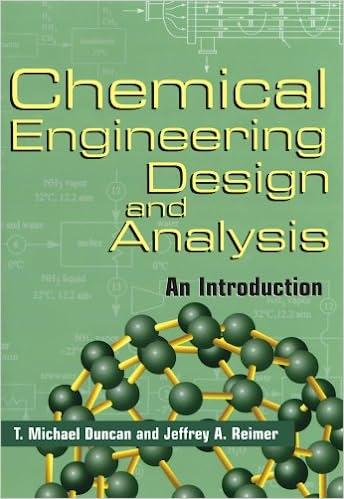Answered step by step
Verified Expert Solution
Question
1 Approved Answer
Please answer all parts of the question as included in the photo. This is NOT an exam, it is a practice exam from another semester
Please answer all parts of the question as included in the photo. This is NOT an exam, it is a practice exam from another semester that was given to help us prepare for the real one. Hydrogen sulfide is a contaminant in many gas streams like biogas, syngas, flue gases etc. Hydrogen sulfide is toxic even at parts per million concentrations and can cause corrosion of equipment with which these gases come in contact with. For the exams you will perform calculations related to two methods of hydrogen sulfide removal from gases a chemical method and a biological method. Biogas produced from anaerobic digesters may contain up to hydrogen sulfide in addition to methane and carbon dioxide. Consider a dry biogas stream made up of by volume methane, by volume carbon dioxide and by volume hydrogen sulfide. As a first approach it is proposed to dissolve all hydrogen sulfide from biogas into water and then precipitate the hydrogen sulfide using ferrous chloride. These tests are carried out at deg C Dissolution of hydrogen sulfide from biogas in water Question Write physicochemical equilibrium equations that describe the a transfer of hydrogen sulfide from gas to water, dissociation of dissolved hydrogen sulfide to bisulfide ion HS and dissociation of bisulfide to sulfide S Question Question Suggest a method to determine the equilibrium constants and Henry's constant for hydrogen sulfide equilbrium and carbon dioxide equilibrium using Visul MINTR a Determine these constants at temperature of deg C from Visual MINTEQ. b Compare the values obtained in a to that from literatureonline database. Please cite the c Provide reasons for any large discrepancies between Visual MINTEQ and database values. Use values obtained from Visual MINTEQ for subsequent calculations. Question From the equilibrium expressions it is apparent that pH has an influence on the concentration of dissociated species of hydrogen sulfide in water. The next step is to determine the minimum pH at which all hydrogen sulfide is transferred to water. For this, an arrangement as shown in Figure is set up Figure Schematic of the setup to determine minimum pH at which all hydrogen sulfide in gas is transferred to water. A twoliter vessel is filled with liter of distilled water. The headspace is flushed with biogas by volume methane, by volume carbon dioxide and by volume hydrogen sulfide The vessel is placed on a magnetic stirrer and the contents are stirred well. The vessel also has ports for dosing M sodium hydrogen to vary pH and a port to introduce nitrogen N gas to maintain the head space at atm pressure. The experiment is conducted at room temperature of a Calculate the moles of methane, carbon dioxide and hydrogen sulfide in liter volume of a Calculate the moles atm pressure and deg C b Using Visual MINTEQ, calculate the pH of the solution at the start of the experiment. The above set up is operated as a batch reactor that is no further biogas or water is added only additions are nitrogen gas to maintain atm pressure and M sodium hydroxide to increase pH The pH is increased in steps of units. As the pH increases hydrogen sulfide and carbon dioxide dissolves into water assume that methane is insoluble in water and to maintain pressure at atm nitrogen enters the head space. Note that as it is a batch process the total inorganic sulfur TIS and total inorganic carbon TIC will remain constant as the pH is varied. The forms in which these exist will depend on pH c Calculate the equilibrium partial pressure of hydrogen sulfide and carbon dioxide in head space in atm units concentration of dissolved hydrogen sulfide, dissolved carbon dioxide, bisulfide, bicarbonate sulfide and carbonate for the pH values tested. Fill out the following Table. Hint: This can be solved on paper not using Visual MINTEQ by setting up equations that calculate each species using physical and chemical equilibrium equations and total sulfurtcarbor calculate each species using physical and chemical equilibrium equations and total sulfurcarbon balance. It may be convenient to use MS MCCEL. Set up formulas for all components in terms of pH
Step by Step Solution
There are 3 Steps involved in it
Step: 1

Get Instant Access to Expert-Tailored Solutions
See step-by-step solutions with expert insights and AI powered tools for academic success
Step: 2

Step: 3

Ace Your Homework with AI
Get the answers you need in no time with our AI-driven, step-by-step assistance
Get Started


